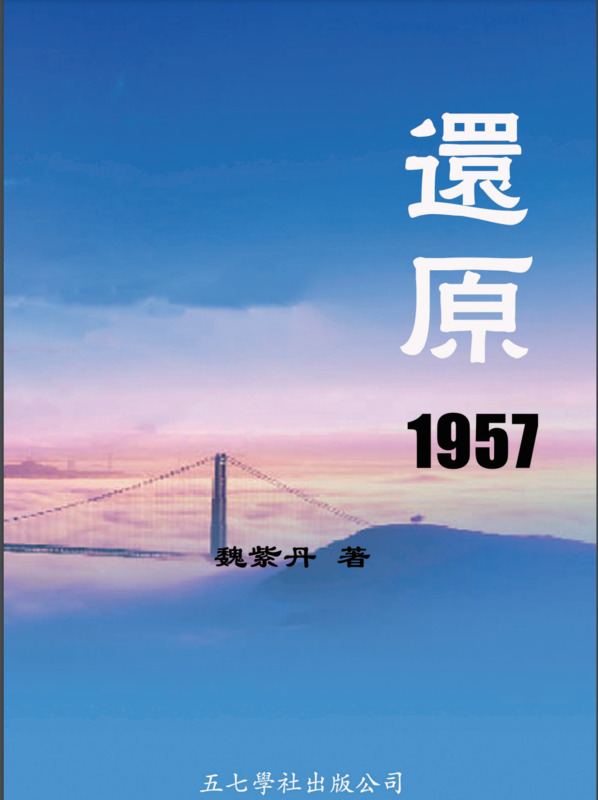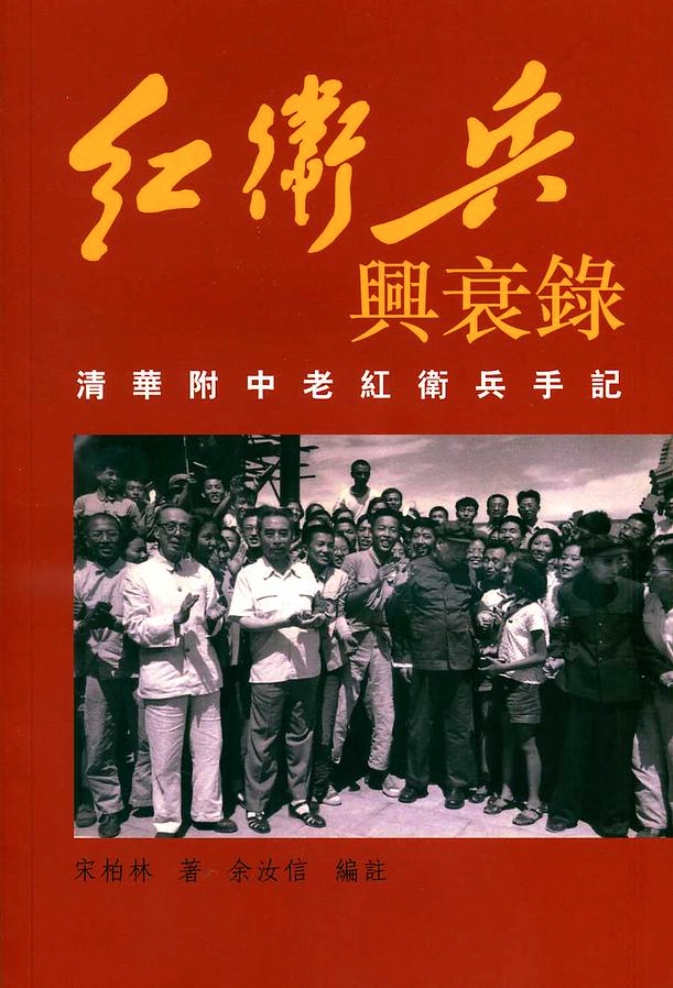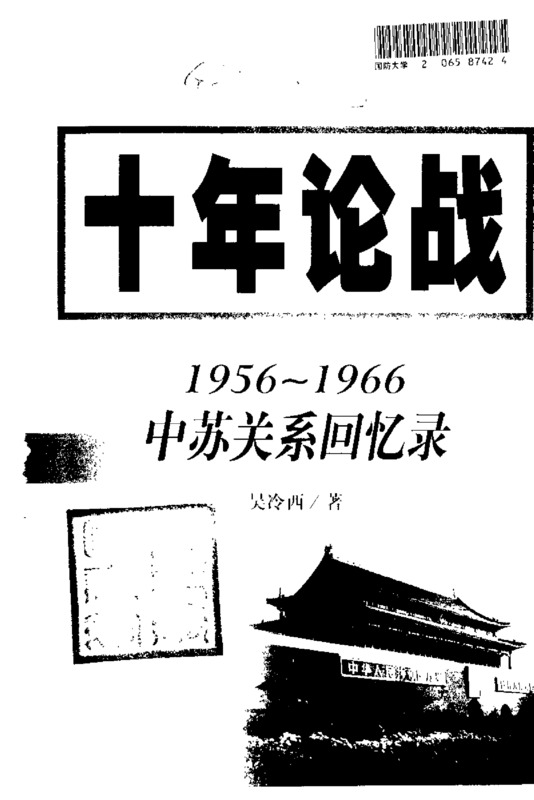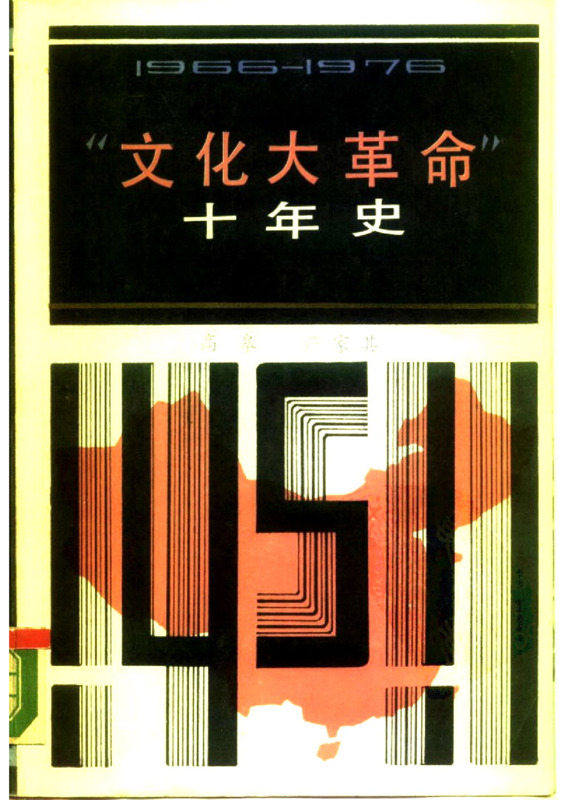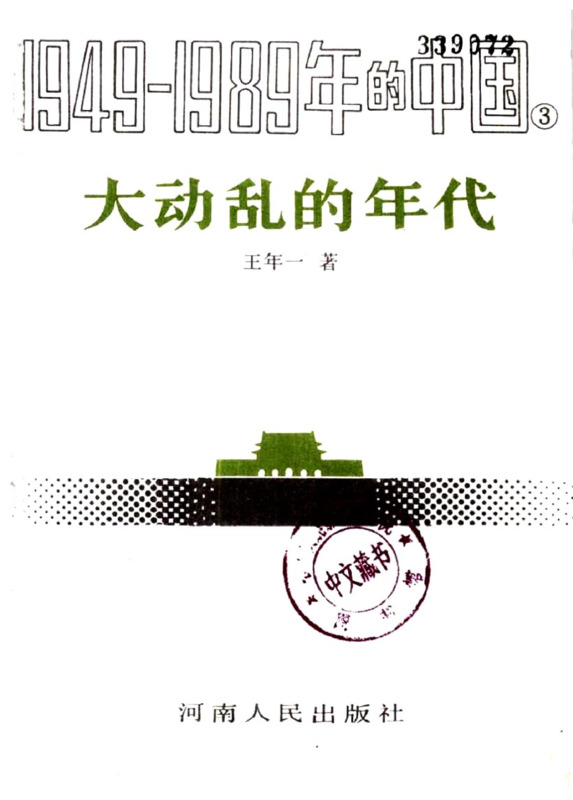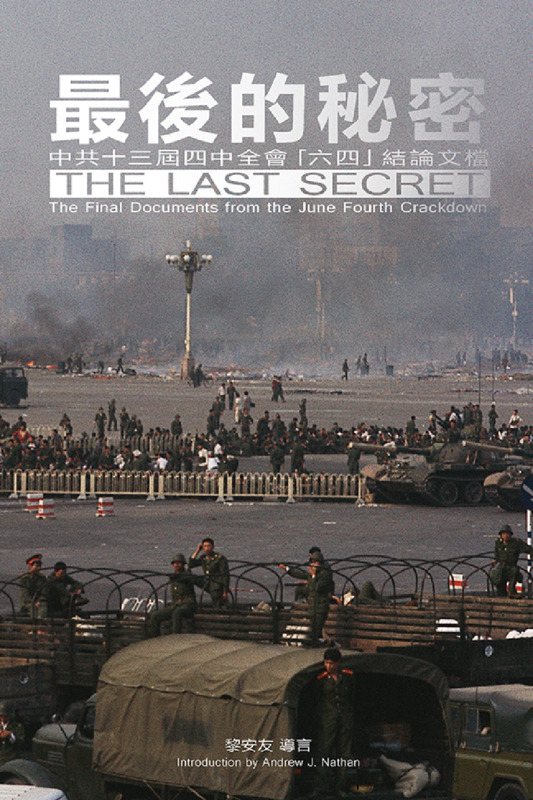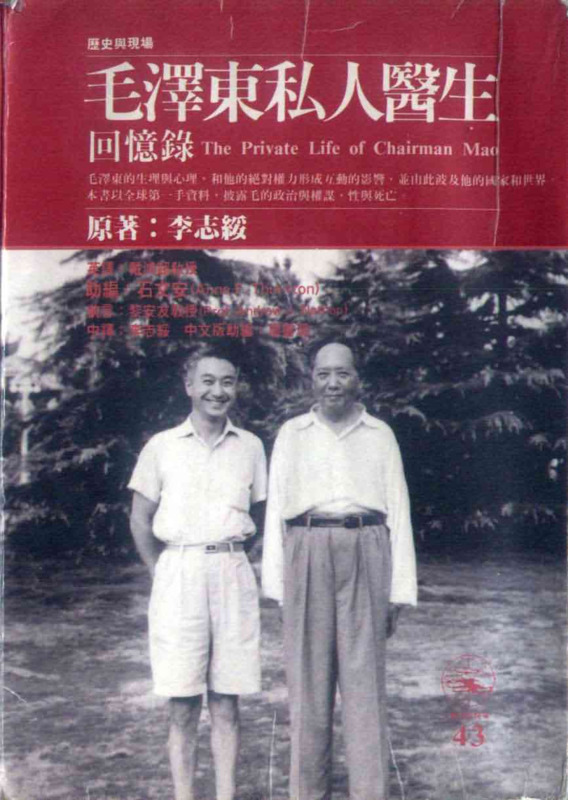Explore the collection
Showing 123 items in the collection
123 items
Film and Video
Ram
The documentary "Ram" was filmed by independent director Tiger Temple in 2016 and is available here in a revised version by the author in 2021. The film documents a real-life incident that took place in Xi'an during the "1983 crackdown". The encounter of the artist Gong Yang (real name Li Xiaoming), the main character of the documentary, is quite representative. It reflects the cruelty and absurdity of the "1983 Crackdown" political campaign launched under the direction of Deng Xiaoping.
Book
Rebellion in All Its Shapes and Colors --The Formation and Evolution of the Spiritual Qualities of the Red Guards
This book seeks to reveal the characteristics of the Red Guard movement through the study of the Red Guard's spiritual qualities, such as the mode of action of the rebellion, the formation of factions and regional differences, as well as the types of Red Guard ideology and the trend of change before and after the Cultural Revolution, etc. The author is a peer of the Red Guard and has accumulated first-hand information on the subject through extensive interviews and documentary research. The author of this book, Xu Youyu, is a peer of the Red Guards, and has accumulated first-hand information about the research through a large number of interviews and documentary research. At present, there are very few studies that analyze the formation of the Red Guards' mentality based on oral data and case studies. Therefore, this book is of great reference value to researchers in this field. This book was published by the Chinese University of Hong Kong Press in 1999.
Book
Rethinking China's Democracy Movement
Author Hu Ping was involved in the Xidan Democracy Wall movement in the late 1970s and now lives in the United States.
He has successively chaired the pro-democracy publications <i>China Spring</i> and <i>Beijing Spring</i>. This book, published in 1992, analyzes the reasons for the failure of the June Fourth Movement and summarizes the lessons learned. The last two chapters suggest how to continue the pro-democracy movement in the future.
Book
Revisiting 1957
<i>Revisiting 1957</i> is not just about the history of the Anti-Rightist Campaign but is also a theoretical reflection on that history. Written by Wei Zidan (the penname for Wei Liyan), the book has three sections: upper, in which the author discusses philosophical problems of the campaign; middle, in which he discusses the origins of the campaign; and lower, which contains his thoughts on lessons for the future. In Wei's view, the people who were declared rightists stood up for freedom of speech. The campaign, therefore, was an assault on freedom of expression and resulted in a human rights catastrophe for China. The book also has an eleven-part appendix with reflections on miscellaneous events.
Wei Zidan was born in Henan Province in 1933 and was a teacher in the Anyang Middle School. He himself was labeled a rightist and brings a unique insider's account of the movement but unlike some personal accounts of suffering, Wei also brings a more analytical approach to the issue.
After moving to the United States in his later years, he collected information and found the freedom to complete this book. Published in Hong Kong in 2013 by the May 7 Society Press.
Book
Rise and Fall of the Red Guards: A Handbook of the Old Red Guards at Tsinghua High School
The Red Guard movement originated in the Tsinghua University Affiliated High School, a secondary school for faculty and staff of the university, as well as others aspiring to attend the elite university, including the sons and daughters of high-ranking cadres. Song Bailin was a senior high school student at Tsinghua High School, one of the founders and a core member of the Red Guards.
Song kept a diary during the first years of the Cultural Revolution. Yu Ruxin, a researcher of the Cultural Revolution, felt that a section of Song Berlin's diary involving the Red Guards of Tsinghua High School was of historical value. Yu decided to publish the diary in its entirety as it was, with no deletion except for the correction of obvious typos. The diary covers the period from May 1966 to February 1968, the launching phase of the Cultural Revolution. A selection of diary entries from January to April 1966 has been included to give a better understanding of the political climate in China on the eve of the Cultural Revolution as well as the ideological trends of high school students.
Because the diary is a historic document directly from an era that is now more than half a century old, the diary lacks historical background and footnotes that might help current readers understand the context of that time. Fortunately, the current publication has a preface written by Luo Xiaohai, who explains the political atmosphere in the years leading up to the Cultural Revolution and some of the key events of that time.
For readers today, the diaries are at times hard to decipher. The Red Guards quickly were criticized by others, including those in power. As the writer Hu Ping notes <a href="https://www.rfa.org/mandarin/pinglun/huping/Hu_ping-20071112.html">in a 2007 review of the book</a>, the reversal of support for the Red Guards must have caused confusion and even a sense of betrayal by many involved. The diary, however, reveals none of this inner turmoil, Hu Ping ascribes the Red Guards' silence to the fact that keeping a diary in that era was a way for participants to prove their revolutionary zeal. Thus they self-censored and wrote with the expectation that their words would be discovered and could be used against them. This means the diary provides little in the way of psychological insights in the Red Guards.
It does, however, provide a way of understanding how totalitarian terror and power works on individual psychology. Thus when his classmates beat classmates and teachers, Song expressed embarrassment that he lacked their fervor and did not participate. This means that the diary is best seen as a primary document that shows the way young people thought at that time, rather than an exercise in self-reflection or criticism.
Book
Science, Democracy, Rationality: Xu Liangying's Anthology
Chinese intellectual Xu Liangying is a scholar of the history of scientific thought and an active warrior in defense of human rights. He weathered China's most extreme political storms and began to speak out again after China opened up slightly in 1977. This book collects his political speeches between 1977-1999. Originally published by Spiegel Publishing in Hong Kong in 2001, the book was later made into a PDF version by Xu Liangying's family in the hope that it would be circulated online to a wider audience.
Book
Seventy Years of the Chinese Communist Revolution
Professor Chen Yongfa's book examines the history of the Chinese Communist Party from the perspective of modern Chinese history. It divides it into three stages: revolutionary seizure of power, continuous revolution, and farewell revolution. It delves into three major issues in CCP history: nationalism, grassroots power structure, and ideological transformation and control. published by Taiwan's Linking Publishing in 2001.
Film and Video
Spark
<i>Spark</i> tells the story of a group of young intellectuals who risked their lives to voice their opinions about the Chinese Communist Party in the 1950s and 1960s. Following the Hundred Flowers Campaign of 1957, many intellectuals were branded as Rightists and banished to work and live in rural China. A group of students from Lanzhou University were among those sent to the countryside. There, they witnessed mass famine which resulted from government policies to collectivize agriculture and force industrialization in rural China. Shocked and angered by the government’s lack of response to the Great Famine, these students banded together to publish <i>Spark</i>, an underground magazine that sought to alert the Chinese population of the unfolding famine. The first issue, printed in 1960, included poems and articles analyzing the root causes of failed policies. However, as the first issue of <i>Spark</i> was mailed and the second issue was edited, many of these students, along with locals who supported the team, were arrested. Some of the key members of the publication were sentenced to life imprisonment and later executed, while others spent decades in labor camps.
In this 2014 documentary, Hu Jie uncovers the stories of the people involved in the publication of <i>Spark</i>. He conducts interviews with former members of the magazine who survived persecution, and also shows footage of the manuscripts of the magazine. A digital copy of the original manuscript of the first volume of <i>Spark</i> is also held on our website.
This film was awarded the Special Jury Prize for Chinese Documentary at the 2014 Taiwan International Documentary Film Festival and the Award of Excellence in the Asian Competition. Later, it won the Independent Spirit Award at the Beijing Independent Film Festival.
Book
Ten Years of War: A Memoir of Sino-Soviet Relations 1956-1966
The author of this book explains the relations between the two parties before and after the 1956-1966 Sino-Soviet War and the main process of the Sino-Soviet War as a first-hand witness. Since Stalin's death and Khrushchev's rise to power, Sino-Soviet relations have been characterized by a series of exchanges over the internal relations between the socialist party and the socialist country, the relations with the "imperialists", how to build socialism, and the national question. As a personal witness to this period, the author tells the truth about history as he knows it. This book was originally published on the mainland in 1993.
Book
Ten-Year History of the Cultural Revolution, The
The authors of this book, Yan Jiaqi and Gao Gao, are a married couple. Both are scholars at the Chinese Academy of Social Sciences (CASS). Yan was the first director of the Institute of Political Science at the CASS and was involved in the Political Reform Office under Premier Zhao Ziyang. The couple went into exile in the U.S. after the June 4 Incident. The book was published by the Tianjin Publishing House in 1986. With a circulation of more than one million copies, many people began to learn about the full history of the Cultural Revolution from this book.
Book
The Age of Great Unrest: China 1949-1989
The author of this book, Wang Nianyi (1932 - September 13, 2007), was an expert on the history of the Cultural Revolution. He has a clear understanding of the causes and circumstances of the Cultural Revolution. He is regarded as doing "pioneering work" in China's domestic study of the Cultural Revolution. According to Qizhi's recollection, Wang Nianyi compiled <i>Chronicle of the Cultural Revolution</i>, <i>The First Year of the Cultural Revolution</i>, <i>Dictionary of the Cultural Revolution</i>, <i>Miscellaneous Discourses on the Cultural Revolution</i>, and <i>Research Materials on the Cultural Revolution</i>, which have not been published in China.
Book
The Brothers Mingjian Xue & Yefang Sun
This book concerns two Chinese economists, Xue Mingjian and Sun Yefang. Xue Mingjian (1895-1980, former name Xue Epei, he changed his name after joining the volunteer student armies during the 1911 revolution - Mingjian (明剑) meant “to eliminate the Qing government with sword and revenge on behalf of the Ming Dynasty (剑除满清,为朱明报复)” ) was "the founder of modern Chinese national enterprise economics, the pioneer of modern national industry, a civil society activist, educator and scholar" (author's preface). He served as a delegate to the National People's Congress of the Republic of China, Senate member of the Kuomintang, and a popularly elected legislator. Sun Yefang (1908-1983, former name Xue Eguo, he changed his name out of security concern after the incident that he got arrested by KMT when he was a underground CCP member), by contrast, a member of the Communist Party of China, was an important economist in post-1949 China, who was persecuted during the Cultural Revolution and regained attention and respect after the reform and opening-up period. The author tells the story of the two brothers' very different life trajectories, while pointing out that even though they were in different political camps, their concern for and practice of humanitarianism were in fact the same.
The book was first published by China SDX Joint Publishing in 2009, and was to be reprinted by Economic Press China in 2014, but it was censored. The version in our archive is published by Boden House in 2023.
Book
The Doubtful Clouds of 1957-- Cracking the Code of the Anti-Rightist Movement
The Anti-Rightist Movement in China began in 1957 with the reorganization of intellectuals, followed by the Great Leap Forward, the People's Commune, and a series of calamities such as the Great Famine. The Hong Kong Five Sevens Society was founded in 2007 with the aim of collecting, organizing, and researching historical information about the Anti-Rightist Movement. It is headed by Wu Yisan, a writer who moved to Hong Kong from mainland China. The author of this book, Shen Yuan, who was also a Rightist at the time. He has systematically researched and organized the Anti-Rightist Movement that took place in 1957 and attempted to answer some of the unanswered questions.
Book
The Great Leap Forward: An Intimate Memoir
Li Rui, who once served as Mao's secretary, is also an expert on Mao Zedong. Like his famous <i>Proceedings of the Lushan Conference</i>, this book is also an important historical work. It focuses on the author's personal experience of the Great Leap Forward initiated by Mao Zedong.
Book
The Herald of History: The Solemn Promise of Half a Century Ago
Compiled by the Sichuan writer Xiao Shu (b. 1962), this book offers a variety of pro-democracy statements released by the Chinese Communist Party media, including short commentaries, speeches, editorials, and documents from <i>Xinhua Daily, Jiefang Daily, Party History Bulletin</i>, and <i>People's Daily</i> from 1941 to 1946. The essays criticize the Kuomintang government for running a "one-party dictatorship" and promised freedom, democracy and human rights.
The book was published by Shantou University Press in 1999. <a href="https://archive.ph/20220329191611/https://www.rfi.fr/tw/%E4%B8%AD%E5%9C%8B/20130817-%E9%A6%99%E6%B8%AF%E5%A4%A7%E5%AD%B8%E5%86%8D%E7%89%88%E3%80%8A%E6%AD%B7%E5%8F%B2%E7%9A%84%E5%85%88%E8%81%B2%E3%80%8B">According to Xiao Shu</a>, the book was heavily criticized by the then-head of the Propaganda Department, Ding Guangen. The publishing house was temporarily suspended, and copies of the book were destroyed. It was republished in Hong Kong by the Bosi Publishing Group in 2002, and reprinted by the Journalism and Media Studies Center of the University of Hong Kong in 2013.
Book
The Last Secret : The Final Documents from the June Fourth Crackdown, Introduction by Andrew J. Nathan
The documents in this book come from two high-level meetings of the CCP held after the June 4 Tiananmen Square Incident in 1989, namely, the Sixth Plenary Session of the Sixth Committee of the Beijing Municipal Committee of the CCP and the Fourth Plenary Session of the Thirteenth Central Committee of the Chinese Communist Party (CCP), which was held on June 23rd and 24th at the Beijing West Guest House. The author claims that the documents were copied and kept for many years by an unnamed senior official within the CCP. This set of documents was formed when the CCP made its final conclusions on the June 4 incident. It is also a record of the high-level political operations within the CCP. These documents reveal the ultimate secret of the mechanism by which the Communist Party has always held absolute power. It was published by New Century Press in 2019. Special thanks to Bao Pu, founder of Hong Kong's New Century Press and son of Bao Tong, former political secretary of Zhao Ziyang, for authorizing CUA to share the book.
Book
The Power of Tiananmen:State-Society Relations and the 1989 Beijing Student Movement
<i>The Power of Tiananmen: State-Society Relations and the 1989 Beijing Student Movement</i> is a sociological monograph. It explains the process of the 1989 school movement and interprets the political and economic situation from four perspectives: state legitimacy, ecological environment and mobilization structure, discourse and modes of action, and public opinion. Author Zhao Dingxin interviewed 70 participants in the movement at the time. He also examined many little-known domestic documents. Thus, theory and evidence are closely intertwined.
The book won the 2002 Distinguished Book Award (Collective Action/Social Movements) and the 2001 Distinguished Book Award (Asian and Asian American) from the American Sociological Association.
It is published by the Chinese University of Hong Kong Press.
Book
The Private Life of Chairman Mao
Author Li Zhisui served as Mao's medical team leader and was the first director of the PLA's San 105 Hospital. This book is a memoir that he wrote. It details Li Zhisui's information from 1954, when he started as Mao's personal physician, to 1976, when Mao died, a period of 22 years. In his writing, Mao's private life is extremely absurd and touches on all aspects of the struggle against some of the CCP's personnel. After the book was published in Taiwan, it was completely banned on the mainland.
Originally written in English, the book was translated into English by Hongchao Dai, former head of the political science department at the University of Detroit, with a foreword by China expert Andrew James Nathan, and with Anne F. Thurston as an assistant editor. was published in English by Blue Lantern Books in 1994. The Chinese edition was translated from the English with the assistance of Shushan Liao and published by Taiwan Times Culture in 1994. Lee died in the United States in February 1995, six months after the book was published.
Book
The Realm of Historiography
This book is a compilation of some of Gao Hua's speeches, book reviews, commentaries on current affairs, reviews of student papers, and lecture transcripts. It includes his studies and reflections on themes around revolution, civil war, and nationalism, his comments on the works of Long Yingtai, Wang Dingjun, and Mao Zedong, and his observations on Taiwan's social and political realities during his visits to Taiwan. In addition, the book contains a selection of Gao Hua's lecture notes on the theory and methodology of historiographical research, as well as on the production of official historical narratives and the development of folk history, enabling readers to gain further understanding of the philosophy and methodology behind Gao Hua’s research.
The book was published by Guangxi Normal University Press in November 2015 before the fourth anniversary of Gao Hua's death, for which the publisher was disciplined by the Central Propaganda Department and the State Administration of Press, Publication, Radio, Film and Television.



